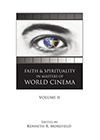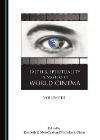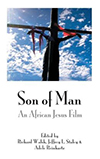- Author(s): Joel W. Martin
- When: 2000-04
- Where: Journal of Religion & Film
As the second millennium winds down, apocalyptic themes inform many Hollywood plots. Several recent popular films and television shows depict epochal threats from space. This essay focuses on the films Independence Day, Armageddon, Deep Impact, Contact, and The Lion King and an episode from "Futurama." Extremely popular--"Armageddon" was the highest grossing film released in 1998--, these films and shows beg for attention. Strikingly, three of them give prominence to father-daughter relationships (in Armageddon, the oil driller hero dominates his coming of age daughter; in Deep Impact, the journalist hero, although estranged from her father, elects to join him on the beach as a fatal tidal wave sweeps the east coast; in Contact, the radio astronomer mourns her lost father and miraculously meets him again on a magical beach at the ends of the universe). What is all of this about? Clearly something vital is going on.
This article examines what the social status and fate of these cinematic daughters say about contemporary gender politics, what this focus on father-daughter relationships reveals about the political unconscious. The article highlights the odd mix of initiative and passivity that characterizes the female protagonists of these films. It traces how these works link feminism with the threat from space, showing how these films suggest that the former causes the latter. This leads to a troubling conclusion, repugnant politically and ethically. According to the politics of these films, to avoid the apocalypse, women must be re-subordinated. The article employs theoretical approaches developed in Screening the Sacred: Religion, Myth, and Ideology in Popular American Film and advanced by scholars such as Douglas Kellner, Michael Ryan, and Janice Rushing.







